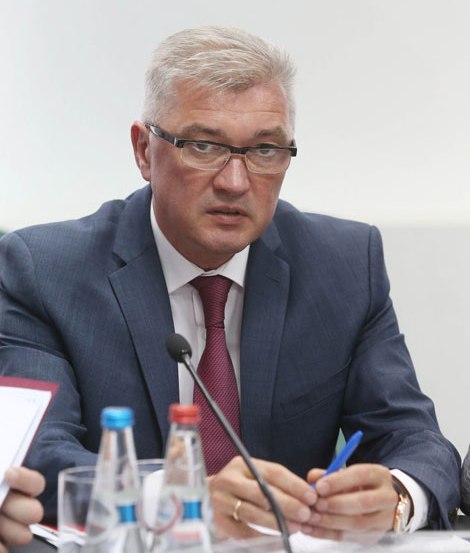Press releases
Belarus' accomplishments in organ transplantation emphasized
 MINSK, 6 April, (BelTA) – Belarus ranks 24th among the world’s most developed countries in terms of transplantation, BelTA learned from Belarusian Healthcare Minister Valery Malashko at the international science and practice conference “Ten years of liver transplantation in the Republic of Belarus: ethical challenges, results and perspectives” in Minsk on 6 April.
MINSK, 6 April, (BelTA) – Belarus ranks 24th among the world’s most developed countries in terms of transplantation, BelTA learned from Belarusian Healthcare Minister Valery Malashko at the international science and practice conference “Ten years of liver transplantation in the Republic of Belarus: ethical challenges, results and perspectives” in Minsk on 6 April.
Valery Malashko stressed that Belarusian transplantology had become an innovative and dynamically developing service, a kind of a driving force behind high-technology medicine in the Republic. "This allowed Belarus to rank 24th in the world’s top 50 most developed countries in terms of transplantation and significantly outperform its closest neighbors and colleagues from the CIS countries," Valery Malashko said. Belarus is in the world’s top 20 in organ donation and ranked 13th according to the results of 2016. Belarus overcame the barrier of 50 transplant operations per 1 million residents for the first time in 2016.
Now all the oblast capitals have transplantology centers that deal mainly with kidney transplantation programs. "We are gradually preparing our Brest colleagues to perform liver and heart transplantations on their own," added Oleg Rummo, Head of the National Applied Research Center for Organ and Tissue Transplantation. If it proves effective, the range of surgical interventions in the regions will expand.
“As for liver transplantations, according to the statistics, 75% of the patients live for more than 5 years, 70% for more than 10 years, and half of them are capable of living for more than 20 years. These people would not have survived for a year without this high-technology operation. And the results improve every year," said Oleg Rummo. Liver transplantation as well as heart transplantation are life-saving operations, he added. Kidney transplantation is an operation that improves sick people’s life. They do not need to undergo dialysis for a long time or be bound to machines. They are able to live a full life. For example, more than 30 women with transplanted organs have given birth to children in Belarus. Most of the patients had received kidney transplants, some of them liver ones, and one woman had had two organs transplanted at the same time.
Special software has been developed in Belarus to eliminate the human factor in the distribution of donor kidneys for transplantation. The program uses two principles for selection purposes - priority and clinical effectiveness. According to the first principle, priority is given to children. Critical patients, who need several organs transplanted at once, come second. An operation is deemed effective not only because it can be done. The operation also has to ensure good quality of life afterwards and long-term functioning of the transplanted organs.
The organizers of the conference "Ten years of liver transplantation in the Republic of Belarus: ethical challenges, results and perspectives" are the Belarusian Healthcare Ministry and the Committee on Bioethics of the Council of Europe. During the conference leading specialists are expected to discuss the development of organ transplantology and bioethics as well as the best ways to organize the transplantation system.







 print version
print version make home page
make home page add to bookmarks
add to bookmarks

